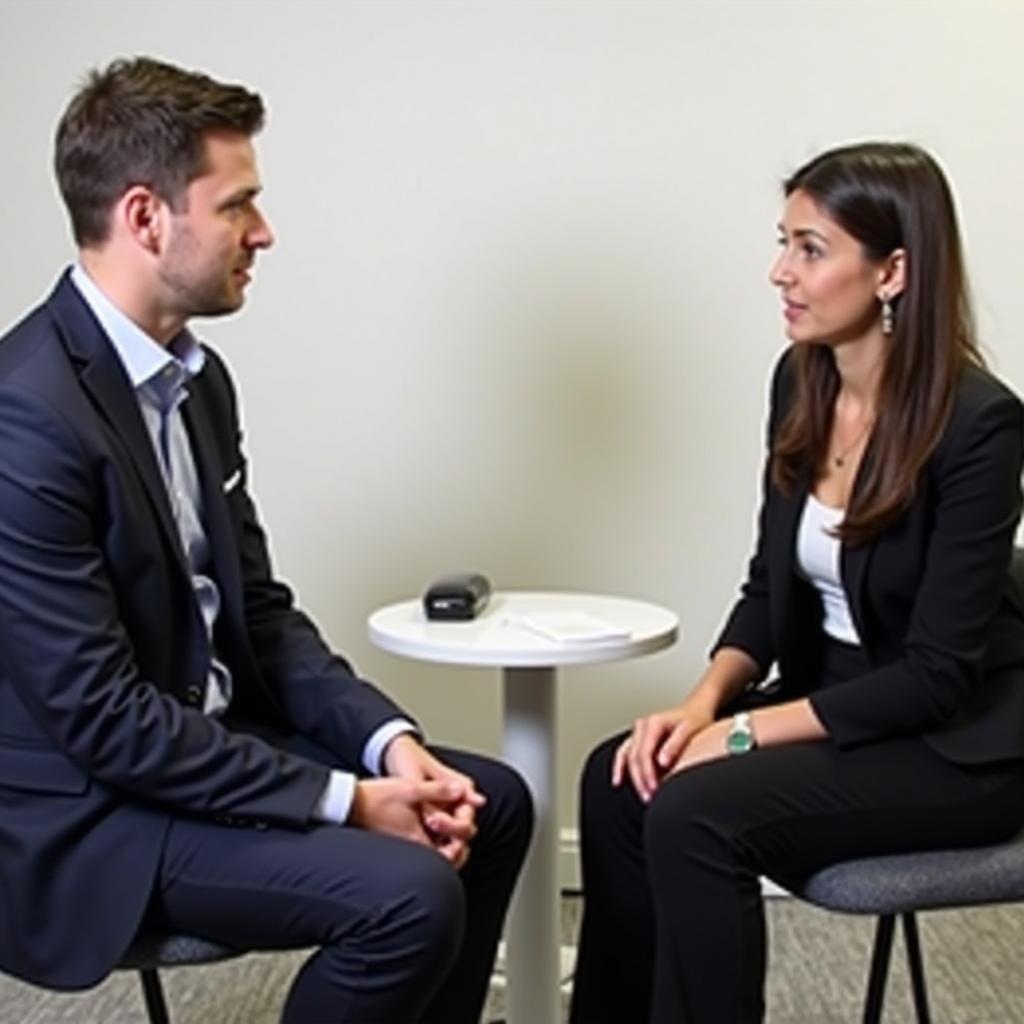One of the most challenging aspects of IELTS Speaking is delivering natural, fluent responses while maintaining accuracy and range. As an experienced how to teach ielts speaking part 1, I’ll share proven strategies and sample answers that demonstrate the qualities examiners look for.
 IELTS Speaking Examiner interviewing a candidate
IELTS Speaking Examiner interviewing a candidate
Part 1: Introduction and Interview
Common questions about teaching and education:
- Do you work as a teacher?
- What qualities make a good teacher?
- Did you have any favorite teachers at school?
Sample answer (Band 8-9):
“Actually, I work as a part-time English tutor. I thoroughly enjoy sharing knowledge and seeing students make progress. I believe the most important qualities for teachers are patience and the ability to adapt their teaching methods to different learning styles. My favorite teacher in high school was describe a teacher who has influenced you greatly because she went above and beyond to ensure everyone understood the concepts.”
Part 2: Cue Card
Describe a time when you taught someone something
You should say:
- Who you taught
- What you taught them
- How you taught them
- And explain how you felt about the experience
Sample answer (Band 8-9):
“I’d like to talk about describe a time when you taught a friend or relative something. Last summer, I took it upon myself to teach my younger cousin photography basics. She had just received her first DSLR camera and was eager to learn but felt overwhelmed by all the technical aspects.
I broke down the concepts into manageable chunks, starting with basic composition rules and gradually moving to more complex topics like aperture and shutter speed. We had hands-on practice sessions where I would describe a time when you taught someone a skill through practical demonstrations. I found it incredibly rewarding to see her progress from taking simple snapshots to creating compelling compositions.”
Part 3: Discussion Questions
Q: How has technology changed the way people learn new skills?
Sample answer (Band 8-9):
“Technology has revolutionized learning in numerous ways. Online platforms and virtual classrooms have made education more accessible than ever. When describe a time when you taught something to a younger person, I noticed how interactive multimedia content significantly enhanced understanding. However, we must acknowledge that technology should complement rather than replace traditional teaching methods.”
Key Vocabulary and Expressions
- To take something upon oneself (phrasal verb): to voluntarily assume responsibility
- To break down (phrasal verb): to explain something complex in simpler terms
- Compelling (adj): /kəmˈpelɪŋ/ – powerful and engaging
- To go above and beyond (idiom): to do more than what is required
- Hands-on (adj): involving practical experience
Examiner’s Tips
- Maintain natural eye contact and positive body language
- Use a mix of simple and complex sentences
- Include relevant personal examples
- Practice speaking for exactly 2 minutes for Part 2
- Develop answers fully with explanations and examples
 IELTS Speaking preparation and practice techniques
IELTS Speaking preparation and practice techniques
Remember, achieving a high score in IELTS Speaking requires consistent practice and attention to both fluency and accuracy. Focus on developing rich vocabulary while maintaining natural delivery.


